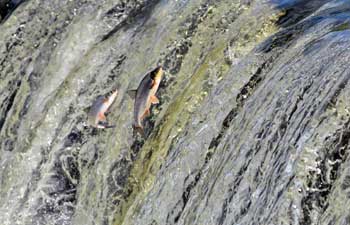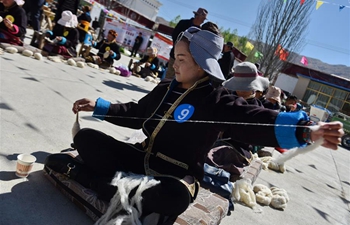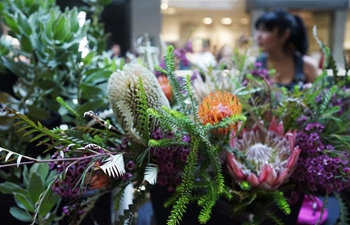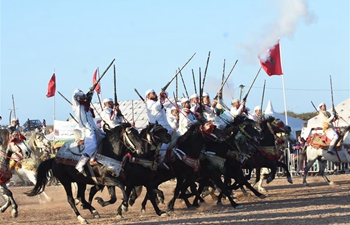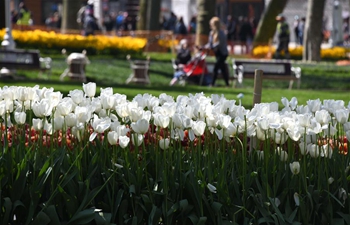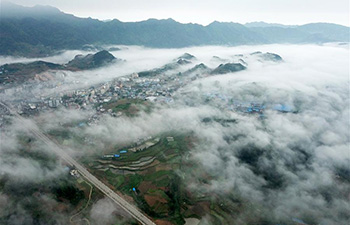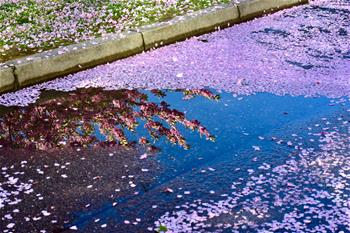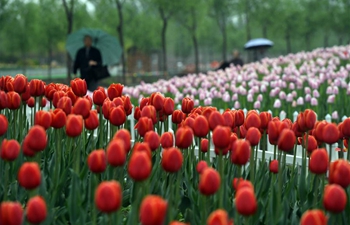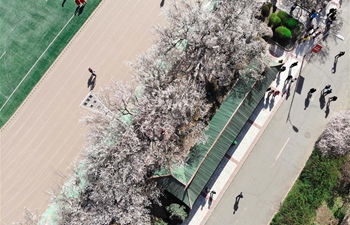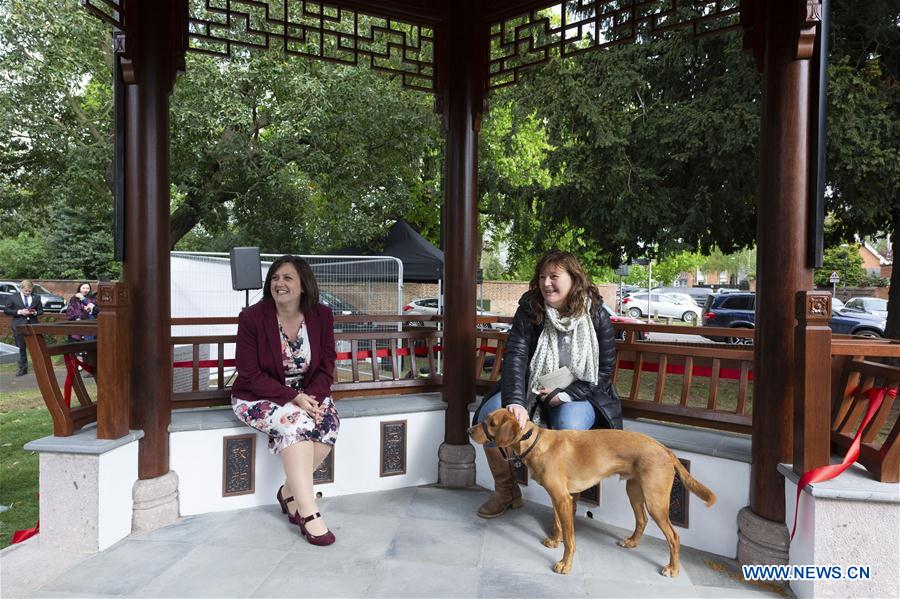 ?
?People take rest in the Peony Pavilion at the Firs Garden of Stratford-upon-Avon, Britain, April 26, 2019. (Xinhua/Ray Tang)
by Xinhua writers Zhang Dailei, Liang Xizhi, Shen Yang
STRATFORD UPON AVON, Britain, April 26 (Xinhua) -- For the first time in their professional career, Luke and Katherine, both performers from William Shakespeare's hometown, played the writer's most loved romance Romeo and Juliet in a delicately designed Chinese pavilion.
The six-meter tall pavilion, inspired by the masterpiece The Peony Pavilion of Chinese playwright Tang Xianzu (1550-1616) from the Ming Dynasty, was unveiled Friday here at the Firs Garden, just 10 minutes' walk from Shakespeare's birth place.
John Bicknell, Mayor of Stratford upon Avon, expressed his thanks on behalf of the town for "the magnificent gift" from China and hailed it as "a fine example of the skills and traditions of Chinese craftsmanship, and a great tribute to the cultural links between this town and city of Fuzhou".
Shakespeare and Tang were contemporaries and they both died in 1616. Tang's hometown Fuzhou, Jiangxi Provence, is sister city of Stratford upon Avon.
Xiao Yi, vice chairman of Jiangxi provincial CPPCC (the Chinese People's Political Consultative Conference), introduced that the Peony Pavilion, integrated an excellent Chinese opera and traditional architecture, "is a symbol of China's time-honored and splendid culture".
Luke McDonald, who played Romeo in the pavilion, told Xinhua that it was nice to perform Shakespeare's greatest piece in such a beautiful oriental building.
"I've heard of Tang Xianzu. I looked into it for today's performance. I know he was as famous as Shakespeare in China," Luke said.
Katherine Gee-Finch, who played the role of Juliet and also a local resident, said the pavilion is a lovely place for local people and tourists to come and have a taste of Chinese culture.
In the past 10 years, the number of Chinese tourists visiting Britain has shot up by over 140 percent, with many tourists coming to experience British cultural heritage, such as here in Stratford-upon-Avon.
Meanwhile, Britain is seeing an increased appreciation for Chinese culture. For example, the display of the Terracotta Warriors in Liverpool, the home of the oldest Chinese community in Europe, was one of Britain's most popular museum exhibitions of last year.
Now the first overseas Peony Pavilion, using British materials and constructed by Chinese workmen, is welcomed by both sides as another highlight to mark the cultural links between China and Britain.
Jeremy Wright, Secretary of State for Digital, Culture, Media and Sport, attended the pavilion unveiling ceremony and said, "It is more than just a physical structure. It is a fitting symbol of the close links between the UK and China, and of the close co-operation taking place between our two countries."
"Bringing two of the world's great writers together is a noble aim and this monument will play a big part in doing so," he added.
In 2015, during his visit to the UK, Chinese President Xi Jinping proposed that the two countries could jointly commemorate the two literary giants so as to deepen people-to-people exchange and mutual understanding.
Fuzhou donated three years ago statues of the two literary giants to Stratford upon Avon, which showed the pair standing shoulder to shoulder, while the Shakespeare Birthplace Trust is working together with Fuzhou to construct a replica of Shakespeare's birthplace in China.
These are the "examples of our nations working together side by side, as part of this golden age of cultural relations," hailed Jeremy Wright.
